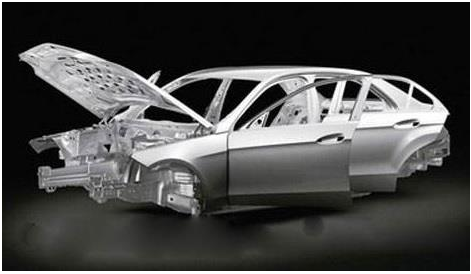Introduction
In recent years, there has been a growing demand for lightweight and high-strength components across various industries. This demand can be attributed to the need for improved fuel efficiency, reduced emissions, and better performance. Among the various materials available, magnesium die casting has emerged as a promising solution to meet these requirements. This article explores the potential of magnesium die casting and its role in unlocking the benefits of lightweight and high-strength components.
What is Magnesium Die Casting?
Magnesium die casting is a manufacturing process that involves injecting molten magnesium into a mold cavity under high pressure. The molten magnesium solidifies and takes the shape of the mold, resulting in the production of complex and intricate components with high dimensional accuracy. This process offers several advantages over traditional manufacturing methods, including reduced weight, excellent strength-to-weight ratio, and improved mechanical properties.
Advantages of Magnesium Die Casting
1. Lightweight: Magnesium is the lightest structural metal, weighing only about two-thirds of aluminum and one-quarter of steel. This inherent lightweight property makes it an ideal choice for applications that require weight reduction, such as automotive, aerospace, and consumer electronics.
2. High Strength: Despite its lightweight nature, magnesium possesses excellent strength and stiffness. Magnesium die cast components exhibit superior strength-to-weight ratio compared to many other materials, making them suitable for demanding applications where strength is crucial.
3. Dimensional Stability: Magnesium die casting offers exceptional dimensional accuracy, ensuring precise replication of complex geometries. This level of accuracy is particularly beneficial in industries like automotive, where tight tolerances are essential for proper fit and function.
4. Design Flexibility: The die casting process allows for the production of intricate and complex shapes that are difficult to achieve with other manufacturing methods. Magnesium die casting can create components with thin walls, fine details, and intricate features, providing designers with greater flexibility in product design.
5. Rapid Production: Magnesium die casting enables high-volume production with fast cycle times. The ability to produce large quantities of components in a short time frame makes magnesium die casting an efficient and cost-effective manufacturing solution.
Applications of Magnesium Die Casting
The versatility and advantages of magnesium die casting have resulted in its adoption in various industries, including:
1. Automotive: Magnesium die cast components are extensively used in the automotive industry to reduce vehicle weight and enhance fuel efficiency. Applications include engine blocks, transmission cases, steering components, and structural parts.
2. Aerospace: The aerospace sector benefits from magnesium die casting due to its high strength-to-weight ratio. Magnesium components find applications in aircraft structures, engine components, and interior parts.
3. Electronics: The lightweight and excellent electromagnetic shielding properties of magnesium make it suitable for electronic devices. Magnesium die cast components are used in laptops, smartphones, tablets, and other consumer electronics.
4. Medical: Magnesium’s biocompatibility and lightweight nature make it ideal for medical applications such as implants, surgical instruments, and equipment.
Challenges and Future Developments
While magnesium die casting offers numerous benefits, there are certain challenges that need to be addressed. Magnesium is highly reactive, making it prone to corrosion, especially in harsh environments. Therefore, proper surface treatments and coatings are required to enhance corrosion resistance. Furthermore, the cost of magnesium is higher compared to other metals, which can limit its widespread adoption.
To overcome these challenges, ongoing research and development efforts are focused on developing advanced alloys with improved corrosion resistance and reducing the cost of magnesium production. Additionally, advancements in surface treatments and coatings are being explored to further enhance the durability and longevity of magnesium die cast components.

Abschluss
Magnesium die casting presents a significant opportunity to unlock the potential of lightweight and high-strength components across various industries. Its unique combination of lightweight, high strength, dimensional stability, design flexibility, and rapid production make it a compelling choice for manufacturers. Despite the challenges associated with corrosion and cost, ongoing advancements in materials and processes are expected to further enhance the adoption of magnesium die casting in the future. With its exceptional properties and versatility, magnesium die casting is revolutionizing the manufacturing landscape and enabling the development of innovative and efficient products.
-

- Starrgabel aus Magnesiumlegierung für Fahrräder - kundenspezifische Druckguss-Metallteile
-

- Hochpräzise Magnesium-Thixomolding-Komponenten UAV-Abdeckung
-

- Starrgabel aus Druckguss aus Magnesiumlegierung für Fahrräder
-

- CNC-bearbeitete Teile und Komponenten
-

- Magensium-Mountainbike-Rahmen
-

- Maßgeschneiderte Metallteile für das Macbook-Mittelbrett hergestellt

 0086-750-5616188
0086-750-5616188 +86 13392089688
+86 13392089688 sales@zhongmei-tech.com
sales@zhongmei-tech.com







